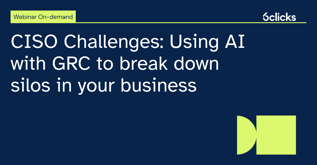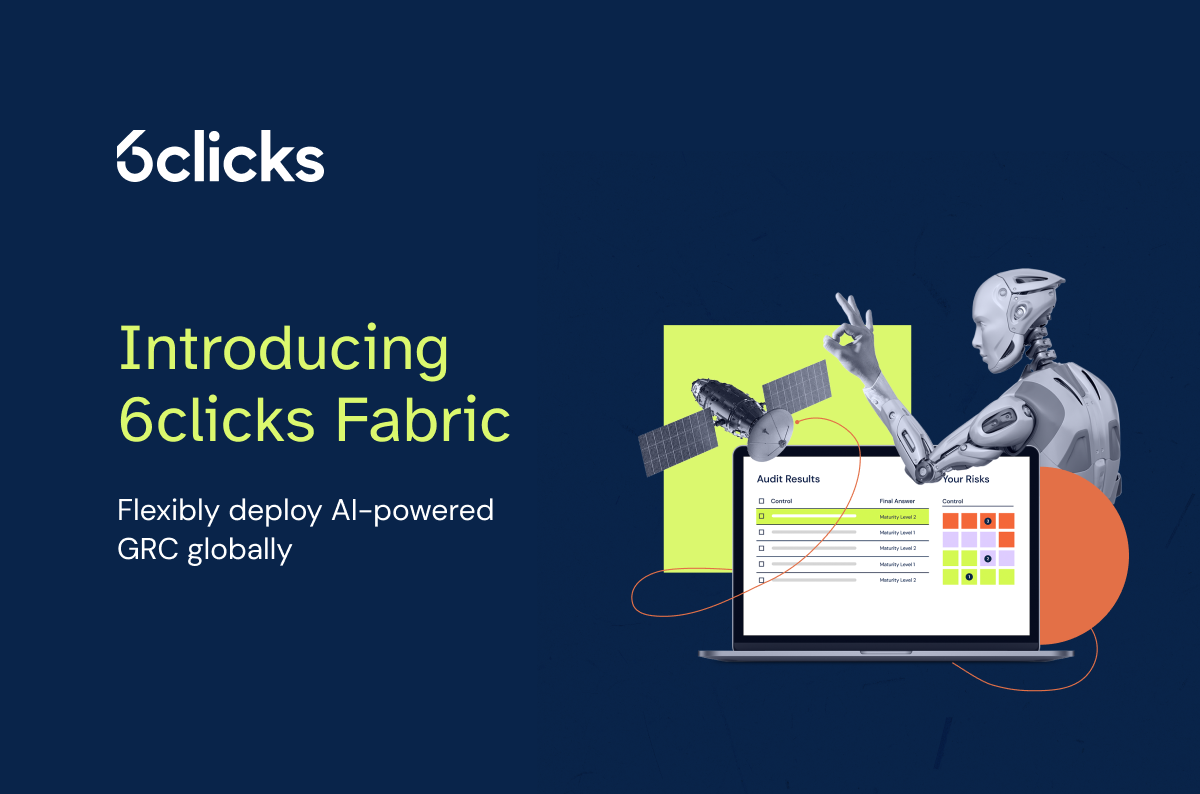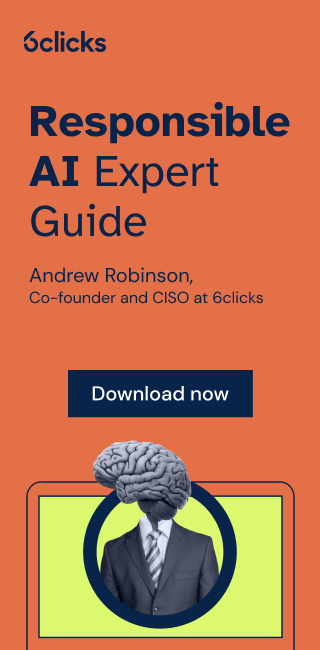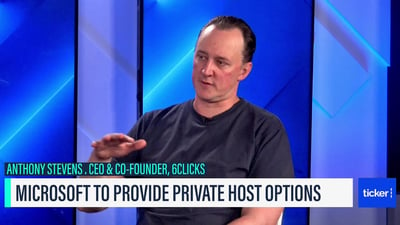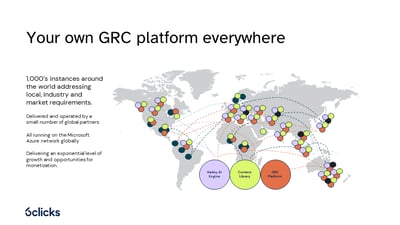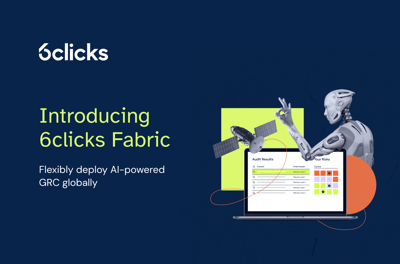Discover the options when it comes to choosing GRC technology to support your advisory or managed services offerings.
Understanding the importance of GRC software for your firm and clients
GRC software is a vital tool for businesses operating in today's changing and complex regulatory landscape. It helps organizations manage and mitigate risks, ensure compliance with laws and regulations, enhance cybersecurity and maintain good governance practices.
By hosting your own GRC software platform, you gain full control over the configuration, embedded content and can tailor the software to meet the specific needs of your market or industry. This allows you to streamline your service delivery, operations, improve decision-making, and incorporate technology effectively in your go-to-market plans including managed services.
Understanding the importance of GRC software for your clients though is the first step towards successfully hosting your own platform. It enables you to recognize the value it brings to them and the benefits it can provide in terms of risk mitigation and compliance management.
Also, in most cases, clients need and expect more than just software; they require intellectual property, content and great advisory services and ongoing operational support to truly uplift their maturity. This is where 6clicks can underpin your go-to-market...
Selecting the right GRC software platform to scale your business
Selecting the right Governance, Risk Management, and Compliance (GRC) software for your firm is a critical decision that hinges on a deep understanding of your specific needs, goals, and the level of control you desire over the technology and processes. The landscape of GRC solutions offers a spectrum of options, from building bespoke tools to partnering with next-generation platforms. This article explores these options and the associated considerations to help guide your decision-making process.
1. Building your own tools or platform
For firms prioritizing complete control over the innovation cycle, developing custom GRC software might be the way forward. This approach allows for tailoring the software to fit the exact needs of your business, including specific risk management frameworks, compliance requirements, and internal workflows. However, this option requires significant investment in terms of time, resources, and expertise in software development and GRC principles. It's ideal for organizations with the necessary capital and a clear vision of how a bespoke solution can offer competitive advantages.
| Pros | Cons |
| Complete control of the strategy, features and capability that's built you need | Significant upfront capital investment. Any contemporary, fully featured platform will require the investment of tens of millions of dollars. |
| Protection of all aspects of your IP and related research efforts | Ongoing maintenance and capital investment |
| Ability to adapt the commercial model of your software however you like | Innovation and capability broadly available to others |
| An opportunity internally to expose teams to different projects and opportunities to create value | Attracting and retaining specific skills to build the software |
| A slower time to market that focused players | |
| Inability to easily monetize within the rest of the market |
In today's market, trying to DIY your own software and tooling when it's not your core business can be a costly and challenging endeavor.
2. Implementing traditional GRC software
Traditional GRC platforms offer a comprehensive suite of tools designed to manage compliance, risk, and governance processes. Opting for an established GRC software means relying on a proven framework that has been tested across various industries. This choice is suitable for firms seeking a balance between customization and out-of-the-box functionality however, it may involve adapting your processes to fit the software's capabilities.
In most cases however, this approach does not meet the operational and strategic needs of the advisor/MSP as traditional GRC software was only built with the end-customer's needs in mind.
| Pros | cons |
| Most traditional software is old and takes time to configure which means billable hours for clients that want to pay for that |
Businesses are increasingly shying away from traditional GRC software given the total cost of ownership, complexity and slow innovation cycles. |
| In some markets, traditional GRC software brands have been around for a while and so are better recognized. | Innovation and release cycles are typically annual or bi-annual compared with newer entrants that release continuously. |
| Traditional GRC software, was not built nor designed for advisors and MSP. At best it was an afterthought. |
Learn more here about the total cost of ownership when considering GRC software.
3. Exploring newer point solutions
Point solutions represent a more modular approach to GRC, focusing on specific areas such as compliance management, risk assessment, or policy management. This option allows firms to address particular needs without the commitment to a comprehensive platform. It's a good choice for organizations aiming to limit capital investment while still enhancing their GRC posture. The challenge here lies in ensuring these point solutions can integrate seamlessly with existing systems and workflows.
| pros | cons |
| Niche or point solutions can be quick and easy to implement | Niche or point solutions don't support the ability for cross/up-sell of your services to clients. You are limited to the scope of the product - no more or less |
| Point solutions can be easier to sell and pitch in addressing a very specific pain point of your clients | Extensive research and analyst commentary has indicated client's preference to use suites rather than point solutions because int he world of risk and compliance, everything should (needs to be!) integrated and considered overall. |
4. Partnering with next-generation platforms
Next-generation GRC platforms, often designed with advisors and Managed Service Providers (MSPs) in mind, offer a blend of innovation, flexibility, and comprehensive coverage. These platforms are built to accommodate the evolving landscape of risk and compliance, providing tools that streamline service delivery and solve operational problems for clients. Partnering with such platforms can offer the best of both worlds: access to cutting-edge technology and the ability to focus on your core business without the burdens of software development.
| pros | cons |
| Given the pedigree and sophistication of next-generation platforms like 6clicks, you can leverage the latest in technology advancements like artificial intelligence and modern architectures like Hub & Spoke. | You may need to think differently about what's important to your business and where the market is heading. |
| Some investment in understanding the approach and the opportunity will yield the greatest return on investment. |
Learn more about 6clicks Fabric here and read about the backstory and inspiration behind the concept here.
Considerations for your choice
When deciding among these options, consider the following factors:
- Innovation vs. Implementation: Do you have the resources and desire to innovate, or would you prefer to implement proven solutions?
- Control vs. Convenience: How important is it to control every aspect of your GRC processes, from software development to hosting environments?
- Investment vs. Integration: Are you looking to limit upfront capital investment, or is the seamless integration of GRC tools into your current operations more critical?
Conclusion
Selecting the right GRC solution for your firm is not a one-size-fits-all decision. It requires a careful assessment of your firm's specific needs, goals, and the level of control you wish to exert over your GRC processes. By understanding the trade-offs between developing your own tools, implementing traditional software, adopting point solutions, or partnering with next-generation platforms, you can make an informed decision that aligns with your strategic objectives and operational requirements.
Consider factors such as scalability, ease of use, integration capabilities, reporting features, and customer support. Assess whether the platform aligns with your industry's regulations and standards. Additionally, evaluate its track record and reputation in the market. Understanding the differentiation of GRC solutions is critical in today's
By selecting the right GRC software platform, you lay the foundation for a successful hosting experience. It ensures that the software meets your organization's needs and provides the necessary functionalities to effectively manage governance, risk, and compliance.
Join us as we continue to push the boundaries of risk and compliance.
Written by Anthony Stevens
Ant Stevens is a luminary in the enterprise software industry, renowned as the CEO and Founder of 6clicks, where he spearheads the integration of artificial intelligence into their cybersecurity, risk and compliance platform. Ant has been instrumental developing software to support advisor and MSPs. Away from the complexities of cybersecurity and AI, Ant revels in the simplicity of nature. An avid camper, he cherishes time spent in the great outdoors with his family and beloved dog, Jack, exploring serene landscapes and disconnecting from the digital tether.


